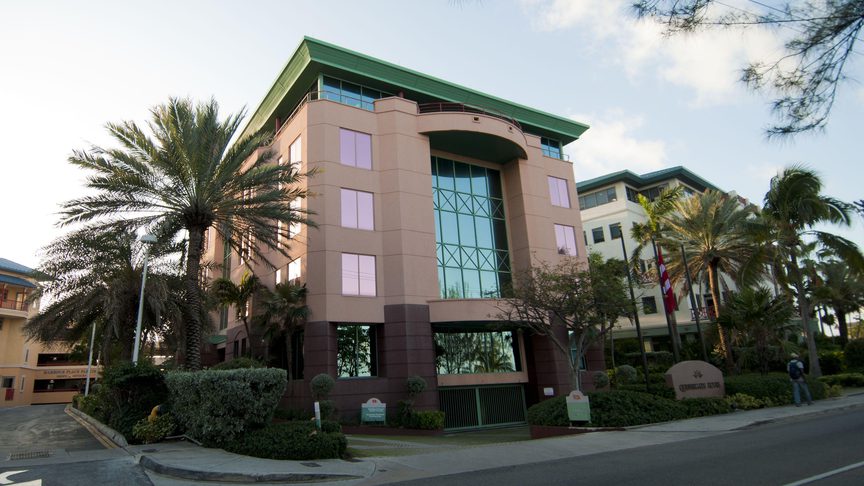

On This Page
If you heard Cayman is a "tax haven" you've heard wrong! The Cayman Islands is a well-regulated, tax neutral financial centre. In fact, it is one of the top ten financial centres in the world, with over 40 of the top 50 banks holding licences in the country.
The Cayman Islands continues to maintain its dominant position as a leading global financial hub, efficiently connecting law-abiding users with providers of investment capital and financing worldwide, benefitting both developed and developing countries. Cayman’s commitment to excellence and modern legislation are a few key elements of its performance, particularly in capital markets and investments. Alongside this, Cayman is strengthened by close connections to the United Kingdom. Cayman has also remained the leading jurisdiction for international hedge funds, as around 85% of the world’s hedge funds are currently located here. Cayman is the number one domicile for healthcare and group captives, and continues to excel globally in banking, capital markets, trusts and fiduciary services.
As one of only four countries outside of the G20 to hold a position in the top 25 Global Financial Centres in the world, it is not surprising that The Banker magazine named Cayman as the world’s Top Specialised Financial Centre in 2017, and in 2018 the Top Financial Centre in Latin America. Industry awards such as these highlight the jurisdiction’s success in achieving legislative and regulatory balance, while creating innovative financial solutions for global clients.

Cayman has world-class shore diving
Political Stability
The Cayman Islands is a parliamentary democracy with separate judicial, executive and legislative branches and holds its general elections every four years. Cayman has a “One Man, One Vote” electoral system, with 19 districts and each represented by one Member of Parliament. As of December 2020, the LA became known as Parliament and MLAs became Members of Parliament. Since the establishment of political parties in the Cayman Islands, a record number of candidates entered the 2021 race as independents and a total of eleven were elected. Six former Cabinet and Progressives members – Sir Alden McLaughlin, Roy McTaggart, Juliana O’Connor-Connolly, Dwayne Seymour, Joseph Hew and Moses Kirkconnell – were re-elected. However, after the much talked about ‘horse-trading’ – what locals call the period of time following an election when ministry assignments are decided – the independents, formed the government, and secured control of Cabinet.
Premier Wayne Panton holds responsibility for sustainability, climate resiliency, finance and economic development. Dwayne Seymour is minister for border control and labour. Minister Kenneth Bryan is responsible for tourism and ports. Minister Juliana O’Connor-Connolly oversees education, district administration, lands and survey, and she is also the deputy premier. While Bernie Bush has home affairs, youth, sports, culture and heritage. Andre Ebanks is responsible for financial services and commerce and is minister for investment, innovation and social development. Jay Ebanks now has responsibility for planning, agriculture, housing, infrastructure, roads and transportation. Sabrina Turner has health and wellness. Former opposition leader McKeeva Bush is the Speaker of the House. Roy McTaggart is the new Leader of the Opposition, with Joey Hew as Deputy Leader. The next general election is scheduled to be held in 2025.
Relationship with the UK
The Cayman Islands have been connected to Great Britain since the signing of the Treaty of Madrid in 1670. From that time until 1962, Cayman was linked to Jamaica as a dependency. In 1962, Jamaica chose to become independent, but the Cayman Islands decided to remain a British colony.
In 2002, the Foreign and Commonwealth Office discontinued the use of the term “Dependent Territory” and the Islands are now called an “Overseas Territory”. The Foreign and Commonwealth Office appoints a Governor, whose responsibilities cover a number of areas including: National Security, Foreign Affairs, Police, Immigration, Passport Office, Postal Services and other portfolios such as Broadcasting, District Administration and Civil Service.
Currently, there is very little desire amongst Caymanians for the Islands to become independent.
Tax Neutrality
‘Tax haven’ is a phrase that is often thrown around in the media and politics, and incorrectly assigned to the Cayman Islands. Cayman does not meet any of the tax haven definitions set out by the OECD, Transparency International or Tax Justice Network. It does not offer tax incentives designed to favour non-resident individuals and businesses.
Cayman has an effective tax system whereby total government tax revenues, as a percentage of GDP, are similar to tax rates in G20 countries and sufficient to fund government operations. This makes additional taxes unnecessary.
Cayman does not have differing tax rates for foreign entities. Cayman does not have legal mechanisms or treaties (such as double taxation agreements) in place with other countries to legally transfer tax bases from one country to another in order to aggressively reduce taxes. Cayman does not promote itself as a jurisdiction for aggressive tax planning. Cayman offers no tax incentives designed to favour non-resident individuals or businesses.
Cayman signed its first Mutual Legal Assistance Treaty with the USA in the 1980s and has tax information exchange agreements with 36 jurisdictions; the Multilateral Convention on Mutual Administrative Assistance in Tax Matters, which allows tax information exchange with more than 90 countries; automatic data exchange as part of the European Union Savings Directive; and has adopted US FATCA, UK FATCA and the OECD’s Common Reporting Standard.
International policy makers continue to recognise the vital role Cayman’s financial services industry plays as a strong international partner in combatting corruption, money laundering, terrorist financing and tax evasion.

Lengends Tennis at the Ritz Carlton Cayman Islands
Stable & Responsive Legal System
The Cayman Islands legal system is based on English common law, with the addition of local statutes which have, in many respects, changed and modernised the common law.
The Islands have a good legal and judicial system and are constantly being upgraded to enhance their safety and reputation as a leading financial centre.
The courts system is a simple one, with practice and procedure based on English law. Minor criminal and civil cases are tried by a Stipendiary Magistrate sitting in the Summary Court. All serious crimes and most civil cases, are tried by the Grand Court, presided over by the Chief Justice and Grand Court Judges permanently residing in the Islands. Appeals lie from the Grand Court to the Cayman Islands Court of Appeal, which sits in Grand Cayman and from there to the Judicial Committee of the Privy Council in England.
New residents, especially those from the US, may be surprised to find that barristers in court wear wigs and gowns.
Highly Sophisticated Service Providers
To be successful in this competitive industry requires political and economic stability, tax neutrality, a responsive legal system, a stable banking environment, a sound regulatory regime, absence of exchange controls and the presence of highly sophisticated service providers. All these factors, as well as Cayman’s status as an overseas territory of the United Kingdom and its international cooperation regimes in the areas of tax information exchange, regulation and law enforcement, provide the necessary level of confidence to ensure a hospitable financial environment.
That confidence is built on Cayman’s status as a transparent, cooperative jurisdiction that already meets or exceeds the full range of globally-accepted standards for transparency and cross-border cooperation with law enforcement and tax authorities. Cayman became an early adopter of automatic data exchange, signing onto agreements such as the EU Savings Directive, OECD’s Common Reporting Standard, U.S. FATCA, and country-by-country reporting principles under BEPS. The OECD’s Global Forum in 2017 assessed our jurisdiction to be “largely compliant” with the international standard for transparency and exchange of information, the same rating given Germany, Canada and Australia.
This commitment to the highest standards is why Cayman continues to attract service providers such as lawyers, accountants and administrators of the highest calibre, making the jurisdiction attractive to foreign investors. The wealth of international expertise available in Cayman is one of the key factors making Cayman a jurisdiction of choice. Clients have access to a wide array of services, including trusts, structured finance, insurance, banking, reinsurance, company and asset management, vessel and aircraft registration, and stock exchange listings.
Absence of Exchange Controls
In 1966 the foundations of the Cayman Islands becoming a global financial centre was laid by the enactment of a handful of laws, including the Banks and Trust Companies Regulation Law, the Trusts Law and the Exchange Control Regulations Law. The Companies Law had been enacted earlier in 1960 and in the decade from 1966 to 1976, the sector took root, significantly assisted by political uncertainty in the Bahamas and the development of the Euro. At the end of 1976, there were 7,521 registered companies, 126 banks and trusts with assets of US$21.9 billion, and 1 captive insurance company. Contributing to the local stability was the decision in 1970 for the Cayman Islands to begin issuing its own currency. Prior to this Cayman had used the Jamaican dollar as legal tender, a carry-over from the Cayman’s history as a dependency of Jamaica. It was felt that, in view of the rapid progress of the Cayman economy, it would be to the Islands’ economic and political advantage for the jurisdiction to have its own currency and a Currency Board (now the Cayman Islands Monetary Authority). Further cementing the Cayman currency’s stability was the 1974 decision to delink the currency from sterling and to tie it to the US dollar a relationship that exists today. The country has always enjoyed a healthy surplus in the reserves backing the Cayman dollar. Cayman’s resident population was around 13,000 in 1974. [Paragraph written by Timothy Ridley: What makes the Cayman Islands a successful international financial services centre?]
All exchange control restrictions Cayman Islands were abolished during the late 1970’s. The absence of exchange controls, which allows for the free transfer of funds in and out of the country once requirements are met, has significantly helped Cayman's financial services industry.
